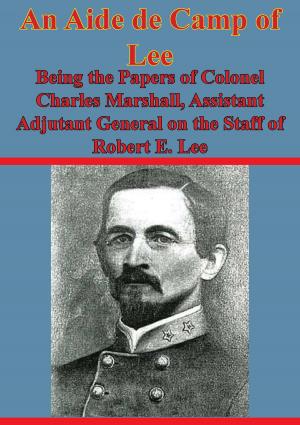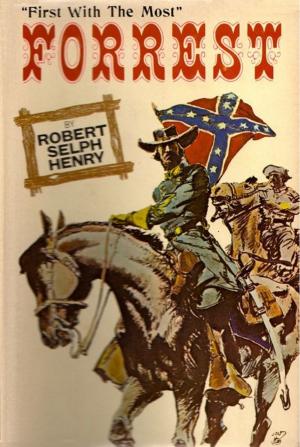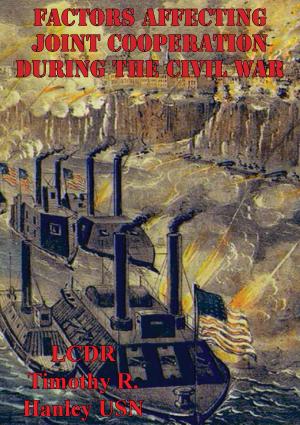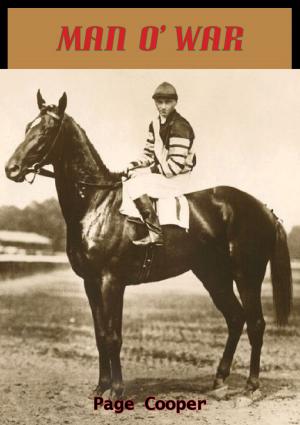Commanders-In-Chief Of The American War For Independence
Nonfiction, History, Military, Weapons, United States| Author: | Major Haydn John White | ISBN: | 9781782896524 |
| Publisher: | Golden Springs Publishing | Publication: | August 15, 2014 |
| Imprint: | Golden Springs Publishing | Language: | English |
| Author: | Major Haydn John White |
| ISBN: | 9781782896524 |
| Publisher: | Golden Springs Publishing |
| Publication: | August 15, 2014 |
| Imprint: | Golden Springs Publishing |
| Language: | English |
Leadership is an intensely studied subject, and a considerable number of models exist. By reviewing four leadership theories, two German, one British, and one American, a model developed that contained the enduring interrelated tenets of courage, judgment, determination, integrity, vision, and luck.
George Washington displayed considerable ability in all these. He had tremendous courage both in battle and in his conviction of a victorious outcome of the war. His judgment above the tactical level was exceptional, and, from limited resources, he developed a standing army and a defensive military strategy, both of which became the cornerstone of victory. He continually frustrated the British. Throughout all the stresses of the war, Washington remained a man of integrity while pursuing a vision of a free and fair republic. His lack of resources forced him to be unconventional. This he achieved by seeking out as much information as possible, so that every favorable opportunity could be exploited and every unfavorable one avoided.
William Howe displayed a limited ability in all the aforementioned tenets. Although brave, he lacked the moral conviction required to prosecute an aggressive military campaign. His tactical judgment was good, if ponderous, but he failed to develop this into operational or strategic success. In particular, he failed to focus to destroy Washington’s army. Consequently, his efforts lacked tenacity, and he became distracted while showing limited integrity by setting a poor example. His focus became purely his army, rather than his area of responsibility as a whole. His limited vision was consistently complicated by his dual role as both military leader and diplomat, and he failed to address either with vigor. His frustration saw him use slow and conventional tactics which were unsuited to the circumstances, while he consistently failed to exploit his opportunities.
Leadership is an intensely studied subject, and a considerable number of models exist. By reviewing four leadership theories, two German, one British, and one American, a model developed that contained the enduring interrelated tenets of courage, judgment, determination, integrity, vision, and luck.
George Washington displayed considerable ability in all these. He had tremendous courage both in battle and in his conviction of a victorious outcome of the war. His judgment above the tactical level was exceptional, and, from limited resources, he developed a standing army and a defensive military strategy, both of which became the cornerstone of victory. He continually frustrated the British. Throughout all the stresses of the war, Washington remained a man of integrity while pursuing a vision of a free and fair republic. His lack of resources forced him to be unconventional. This he achieved by seeking out as much information as possible, so that every favorable opportunity could be exploited and every unfavorable one avoided.
William Howe displayed a limited ability in all the aforementioned tenets. Although brave, he lacked the moral conviction required to prosecute an aggressive military campaign. His tactical judgment was good, if ponderous, but he failed to develop this into operational or strategic success. In particular, he failed to focus to destroy Washington’s army. Consequently, his efforts lacked tenacity, and he became distracted while showing limited integrity by setting a poor example. His focus became purely his army, rather than his area of responsibility as a whole. His limited vision was consistently complicated by his dual role as both military leader and diplomat, and he failed to address either with vigor. His frustration saw him use slow and conventional tactics which were unsuited to the circumstances, while he consistently failed to exploit his opportunities.


![Cover of the book The Civil War Diary Of Cyrus F. Boyd, Fifteenth Iowa Infantry, 1861-1863 [Illustrated Edition] by Major Haydn John White](https://www.kuoky.com/images/2016/august/300x300/9781787200296-UdfO_300x.jpg)






![Cover of the book A Soldier's Recollections [Illustrated Edition] by Major Haydn John White](https://www.kuoky.com/images/2013/february/300x300/9781908902771-kO4t_300x.jpg)

![Cover of the book Fredericksburg, 1862 : A Study of War [Illustrated Edition] by Major Haydn John White](https://www.kuoky.com/images/2012/may/300x300/9781908902610-4e8X_300x.jpg)
![Cover of the book The American War of Sucession – 1861-1862 {Illustrated Edition] by Major Haydn John White](https://www.kuoky.com/images/2012/may/300x300/9781908902603-fHpC_300x.jpg)
![Cover of the book The Vicksburg Campaign, November 1862-July 1863 [Illustrated Edition] by Major Haydn John White](https://www.kuoky.com/images/2015/november/300x300/9781782899365-GJ69_300x.jpg)

